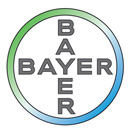What Is Collaborative Practice Agreement
Publicado el 11/9/2022
Collaborative Practice Agreement: An Overview
For healthcare professionals, collaborative practice agreements (CPAs) are an essential part of providing quality care. CPAs are contracts between healthcare providers that outline the scope of practice and the responsibilities of each party. These agreements facilitate teamwork, improve patient outcomes, and help avoid legal and ethical issues.
What is a Collaborative Practice Agreement?
In simple terms, a CPA is a legal agreement between healthcare providers, allowing them to work together to provide patient care. These agreements can be formal or informal, depending on the situation. CPAs are commonly used in interdisciplinary settings where healthcare providers of different specialties work together, such as in hospitals, clinics, or private practices.
A CPA outlines the roles and responsibilities of each healthcare provider involved in patient care. It ensures that everyone involved in the care of a patient is on the same page and working towards a common goal. For example, if a patient has a chronic illness, such as diabetes, a CPA between an endocrinologist and a primary care physician can ensure that the patient receives the best possible care.
Why are Collaborative Practice Agreements Important?
CPAs can benefit healthcare providers and patients in several ways. Here are some reasons why:
1. Improved Patient Outcomes
When healthcare providers work together, patients receive comprehensive care that addresses all their health needs. A collaborative approach to patient care can help prevent complications and improve patient outcomes.
2. Enhanced Communication
Collaborative practice agreements improve communication between healthcare providers, resulting in better care coordination and patient satisfaction. By discussing their roles and responsibilities in advance, healthcare providers can avoid misunderstandings and resolve conflicts quickly.
3. Facilitation of Teamwork
A CPA is a valuable tool for facilitating teamwork and promoting a culture of collaboration. It allows healthcare providers to share their expertise and knowledge, leading to better patient care.
4. Avoidance of Legal and Ethical Issues
CPAs clarify the scope of practice and the responsibilities of each healthcare provider involved in patient care. This can help avoid legal and ethical issues, such as malpractice lawsuits or violations of patient confidentiality.
Conclusion
In conclusion, collaborative practice agreements are an essential part of healthcare. They facilitate teamwork, improve patient outcomes, and help avoid legal and ethical issues. The benefits of CPAs are evident, and healthcare providers should put them in place to improve the quality of care they provide. Remember, by working together, healthcare providers can achieve more, and patients receive better care.
- Free Template for Prenuptial Agreement
- Material Handling Agreement Form
- Kentucky Marriage Separation Agreement
- China`s-Parliament-Ratifies-Paris-Climate-Change-Agreement-Ahead
- Contract Law Agreement Example
- Edit Rent Agreement
- Pie Agreement Definition
- Isda Agreement Template Pdf
- Distributor Agreement Auf Deutsch
- Pa Collaborative Agreement Texas


Hipertension Pulmonar Chile de Ramlight Studio está bajo licencia Creative Commons Atribución-No Comercial-Sin Derivadas 3.0 Unported.